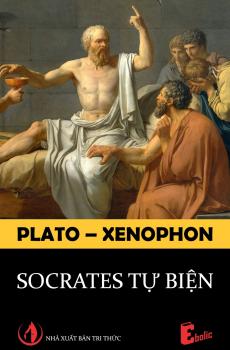Dreams
Dreams
Đăng nhập để đọc sách và tải về file pdf miễn phí
| Nhà xuất bản | Chưa rõ |
|---|---|
| Nhà xuất bản sách tiếp cận | Public domain |
| Năm xuất bản | 2007 |
| Coppy right | Chưa rõ |
Before the dawn of history mankind was engaged in the study of dreaming. The wise man among the ancients was preëminently the interpreter of dreams. The ability to interpret successfully or plausibly was the quickest road to royal favor, as Joseph and Daniel found it to be; failure to give satisfaction in this respect led to banishment from court or death. When a scholar laboriously translates a cuneiform tablet dug up from a Babylonian mound where it has lain buried for five thousand years or more, the chances are that it will turn out either an astrological treatise or a dream book. If the former, we look upon it with some indulgence; if the latter with pure contempt. For we know that the study of the stars, though undertaken for selfish reasons and pursued in the spirit of charlatanry, led at length to physical science, while the study of dreams has proved as unprofitable as the dreaming of them. Out of astrology grew astronomy. Out of oneiromancy has grown—nothing.
That at least was substantially true up to the beginning of the present century. Dream books in all languages continued to sell in cheap editions and the interpreters of dreams made a decent or, at any rate, a comfortable living out of the poorer classes. But the psychologist rarely paid attention to dreams except incidentally in his study of imagery, association and the speed of thought. But now a change has come over the spirit of the times. The subject of the significance of dreams, so long ignored, has suddenly become a matter of energetic study and of fiery controversy the world over.
The cause of this revival of interest is the new point of view brought forward by Professor Bergson in the paper which is here made accessible to the English-reading public. This is the idea that we can explore the unconscious substratum of our mentality, the storehouse of our memories, by means of dreams, for these memories are by no means inert, but have, as it were, a life and purpose of their own, and strive to rise into consciousness whenever they get a chance, even into the semi-consciousness of a dream. To use Professor Bergson's striking metaphor, our memories are packed away under pressure like steam in a boiler and the dream is their escape valve.
That this is more than a mere metaphor has been proved by Professor Freud and others of the Vienna school, who cure cases of hysteria by inducing the patient to give expression to the secret anxieties and emotions which, unknown to him, have been preying upon his mind. The clue to these disturbing thoughts is generally obtained in dreams or similar states of relaxed consciousness. According to the Freudians a dream always means something, but never what it appears to mean. It is symbolic and expresses desires or fears which we refuse ordinarily to admit to consciousness, either because they are painful or because they are repugnant to our moral nature. A watchman is stationed at the gate of consciousness to keep them back, but sometimes these unwelcome intruders slip past him in disguise. In the hands of fanatical Freudians this theory has developed the wildest extravagancies, and the voluminous literature of psycho-analysis contains much that seems to the layman quite as absurd as the stuff which fills the twenty-five cent dream book.
It is impossible to believe that the subconsciousness of every one of us contains nothing but the foul and monstrous specimens which they dredge up from the mental depths of their neuropathic patients and exhibit with such pride.
Bergson's view seems to me truer as it is certainly more agreeable, that we keep stored away somewhere all our memories, the good as well as the evil, the pleasant together with the unpleasant. There may be nightmares down cellar, as we thought as a child, but even in those days we knew how to dodge them when we went after apples; that is, take down a light and slam the door quickly on coming up.
Maeterlinck, too, knew this trick of our childhood. When in the Palace of Night scene of his fairy play, the redoubtable Tyltyl unlocks the cage where are confined the nightmares and all other evil imaginings, he shuts the door in time to keep them in and then opens another revealing a lovely garden full of blue birds, which, though they fade and die when brought into the light of common day, yet encourage him to continue his search for the Blue Bird that never fades, but lives everlastingly. The new science of dreams is giving a deeper significance to the trite wish of "Good night and pleasant dreams!" It means sweet sanity and mental health, pure thoughts and good will to all men.
Professor Bergson's theory of dreaming here set forth in untechnical language, fits into a particular niche in his general system of philosophy as well as does his little book on Laughter. With the main features of his philosophy the English-reading public is better acquainted than with any other contemporary system, for his books have sold even more rapidly here than in France. When Professor Bergson visited the United States two years ago the lecture-rooms of Columbia University, like those of the Collège de France, were packed to the doors and the effect of his message was enhanced by his eloquence of delivery and charm of personality. The pragmatic character of his philosophy appeals to the genius of the American people as is shown by the influence of the teaching of William James and John Dewey, whose point of view in this respect resembles Bergson's.
During the present generation chemistry and biology have passed from the descriptive to the creative stage. Man is becoming the overlord of the mineral, vegetable and animal kingdoms. He is learning to make gems and perfumes, drugs and foods, to suit his tastes, instead of depending upon the chance bounty of nature. He is beginning consciously to adapt means to ends and to plan for the future even in the field of politics. He has opened up the atom and finds in it a microcosm more complex than the solar system. He beholds the elements melting with fervent heat and he turns their rays to the healing of his sores. He drives the lightning through the air and with the product feeds his crops. He makes the desert to blossom as the rose and out of the sea he draws forth dry land. He treats the earth as his habitation, remodeling it in accordance with his ever-varying needs and increasing ambitions.
This modern man, planning, contriving and making, finds Paley's watch as little to his mind as Lucretius's blind flow of atoms. A universe wound up once for all and doing nothing thereafter but mark time is as incomprehensible to him as a universe that never had a mind of its own and knows no difference between past and future. The idea of eternal recurrence does not frighten him as it did Nietzsche, for he feels it to be impossible. The mechanistic interpretation of natural phenomena developed during the last century he accepts at its full value, and would extend experimentally as far as it will go, for he finds it not invalid but inadequate.
To minds of this temperament it is no wonder that Bergson's Creative Evolution came with the force of an inspiration. Men felt themselves akin to this upward impulse, this élan vital, which, struggling throughout the ages with the intractableness of inert matter, yet finally in some way or other forces it to its will, and ever strives toward the increase of vitality, mentality, personality.
Bergson has been reluctant to commit himself on the question of immortality, but he of late has become quite convinced of it. He even goes so far as to think it possible that we may find experimental evidence of personal persistence after death. This at least we might infer from his recent acceptance of the presidency of the British Society for Psychical Research. In his opening address before the Society, May 28, 1913, he discussed the question of telepathy and in that connection he explained his theory of the relation of mind and brain in the following language. I quote from the report in the London Times:
The rôle of the brain is to bring back the remembrance of an action, to prolong the remembrance in movements. If one could see all that takes place in the interior of the brain, one would find that that which takes place there corresponds to a small part only of the life of the mind. The brain simply extracts from the life of the mind that which is capable of representation in movement. The cerebral life is to the mental life what the movements of the baton of a conductor are to the Symphony.
The brain, then, is that which allows the mind to adjust itself exactly to circumstances. It is the organ of attention to life. Should it become deranged, however slightly, the mind is no longer fitted to the circumstances; it wanders, dreams. Many forms of mental alienation are nothing else. But from this it results that one of the rôles of the brain is to limit the vision of the mind, to render its action more efficacious. This is what we observe in regard to the memory, where the rôle of the brain is to mask the useless part of our past in order to allow only the useful remembrances to appear. Certain useless recollections, or dream remembrances, manage nevertheless to appear also, and to form a vague fringe around the distinct recollections. It would not be at all surprising if perceptions of the organs of our senses, useful perceptions, were the result of a selection or of a canalization worked by the organs of our senses in the interest of our action, but that there should yet be around those perceptions a fringe of vague perceptions, capable of becoming more distinct in extraordinary, abnormal cases. Those would be precisely the cases with which psychical research would deal.
This conception of mental action forms, as will be seen, the foundation of the theory of dreams which Professor Bergson first presented in a lecture before the Institut psychologique, March 26, 1901. It was published in the Revue scientifique of June 8, 1901. An English translation, revised by the author and printed in The Independent of October 23 and 30, 1913, here appears for the first time in book form.
In this essay Professor Bergson made several contributions to our knowledge of dreams. He showed, in the first place, that dreaming is not so unlike the ordinary process of perception as had been hitherto supposed. Both use sense impressions as crude material to be molded and defined by the aid of memory images. Here, too, he set forth the idea, which he, so far as I know, was the first to formulate, that sleep is a state of disinterestedness, a theory which has since been adopted by several psychologists. In this address, also, was brought into consideration for the first time the idea that the self may go through different degrees of tension—a theory referred to in his Matter and Memory.
Its chief interest for the general reader will, however, lie in the explanation it gives him of the cause of some of his familiar dreams. He may by practice become the interpreter of his own visions and so come to an understanding of the vagaries of that mysterious and inseparable companion, his dream-self.
Edwin E. Slosson.
New York City,
February 10, 1914.














